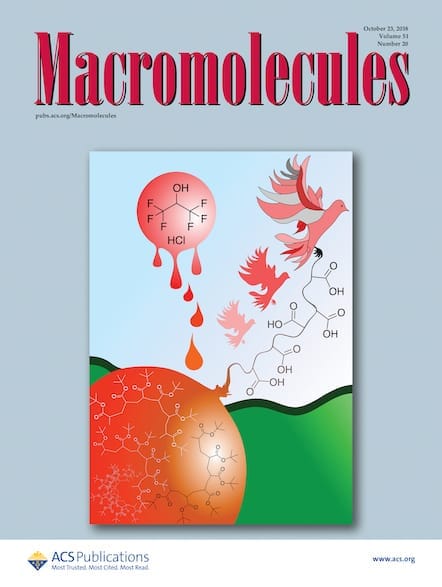In this post, part of our Peer Review Week 2022 series, ACS Ethics Committee Chair and Macromolecules Editor-in-Chief Prof. Marc Hillmyer discusses the importance of ethical peer review, especially for early-career researchers, and how ACS supports integrity through updated guidelines and reviewer education.

Meet Prof. Marc Hillmyer, ACS Publications Ethics Committee Chair and Editor-in-Chief of Macromolecules
For the second part of this five-part series, we spoke with Prof. Marc Hillmyer, the current ACS Publication Ethics Committee (APEC) Chair. Marc is currently the Editor-in-Chief of the ACS journal Macromolecules and previously served as an Associate Editor for the journal from 2008–2017. He is also the director of the NSF Center for Sustainable Polymers, a National Science Foundation Center for Chemical Innovation headquartered at the University of Minnesota.
We asked Marc to share how his current roles as the ACS Publication Ethics Committee Chair and as an ACS journal editor influence and contribute to the collective foundation at ACS that supports research integrity and what advice he may have for Peer Reviewers.
What is the overall mission of the ACS Publications Ethics Committee (APEC)?
In short, the ACS Publications Ethics Committee is charged with evaluation, analysis, and most importantly, updating the ACS Publications Ethical Guidelines to reflect modern publishing and relevant ethical considerations for readers, reviewers, authors, editors, and Society.
What are the major challenges you have seen concerning maintaining and staying current with research integrity?
Research integrity has been critical to the scientific enterprise from the beginning. Trust in science and the scientific method are so critical in our modern society with the spread of misinformation (for example through social media) and mistrust of scientists/science (for example during the pandemic).
Providing frameworks, oversight, guidelines, and education focused on achieving and maintaining the highest level of research integrity is as important as ever. In particular, I think that publication ethics education is so important, and we need to continue to be sure to reach out to younger researchers and help them understand best ethical practices as they pertain to research integrity and publishing.
What advice would you give peer reviewers on how to approach, consider, and fulfill ethical responsibilities when reviewing manuscripts?
The first thing that comes to mind is the preservation of confidentiality in the peer review process. Editors ask reviewers to not only review a manuscript but also to not share the results or content of the manuscript with others (without permission). Moreover, the reviewers should not share with others (including the authors) that they were the reviewer of a particular manuscript. This connects with bias in peer review (e.g., I just positively reviewed your paper, so when you review mine…), and allows reviewers to be more open and candid in their assessment. There is much more I could write in this category, but I would point reviewers to the ACS Publications Ethical Guidelines and ask them to review it prior to the next peer reviewing assignment they receive!
If a researcher has received an invitation to review an article where they believe there may be a conflict, what is an important question or questions they can ask themselves when deciding whether to accept or reject?
Is there an actual conflict (I currently collaborate with the authors, the authors are at my institution, I am related to one of the authors, etc.), a possible conflict (I work in the area that is the subject of the manuscript, the author was a collaborator 10 years ago, I have met this author at a meeting and we discussed the work, the author was in my research group when I was a student), or a possible appearance of a conflict that encompasses elements of the above scenarios?
Basically, the onus is on the reviewer. The reviewer has to decide if a prior or current situation could bias their judgment of the manuscript. If the answer is yes, the reviewer should return the manuscript and let the editor know why they are doing so. If the reviewer has any doubts, I’d encourage them to alert the editor to the potential conflict, and the Editor can help to determine if the reviewer should recuse themselves from reviewing the submitted work.
What do you find most satisfying about the work you do as both the APEC Chair and Editor-in-Chief of Macromolecules, and how does each influence the other?
I very much appreciate the opportunity I have had to lead the newly formed APEC. It has allowed me to think more deeply about ethical issues and help guide the community along with a wonderfully thoughtful, highly engaged, and experienced group of other editors on the committee. Leading Macromolecules has been a highlight of my career, and I have a strong sense of responsibility to the journal, its readers, authors, reviewers, and editors to keep it at the top of the polymer publishing world while upholding the highest standards of ethics!
Upcoming Peer Review Week Events
If you want to hear more from Marc, register below to join in the conversation tomorrow (Wednesday, September 21) from 1:00 pm – 2:00 pm EST to further discuss how we can all create and support trust in scientific research. The webinar is free for all to attend.
